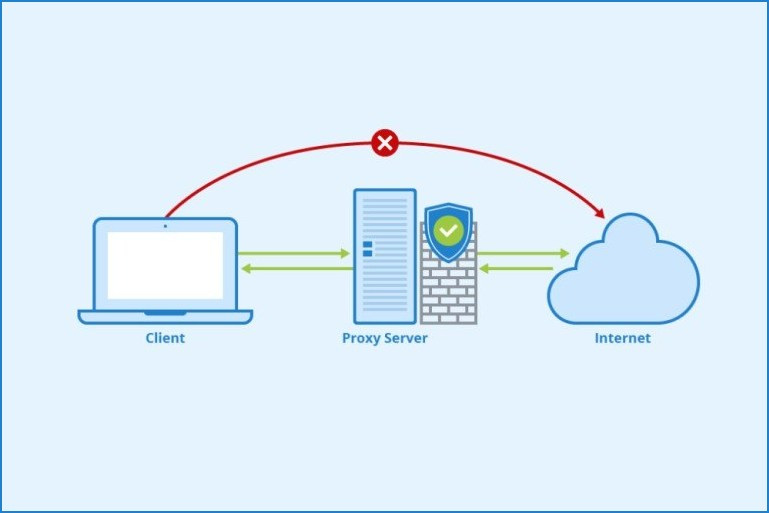
Date First Published: 2nd February 2022
Topic: Computer Networking
Subtopic: Network Services
Article Type: Computer Terms & Definitions
Difficulty: MediumDifficulty Level: 6/10
Learn more about what a proxy server is in this article.
A proxy server, also known as a proxy, forwards traffic sent from a computer to the proxy server and may offer an anonymous network connection from a different location and a different IP address. An internet connection is required to connect to the proxy server and it acts as a 'bridge' between the user and the rest of the internet since it helps users to connect to websites indirectly. As of now, there are lots of online proxies that do not require anything to be installed or downloaded to a computer, including Hide.me, Proxysite.com, and Croxyproxy.com.
Whenever a user requests a webpage through a proxy server, they will first connect to that proxy and the user will be connected to the website through the proxy via an outside host server. All internet traffic is forwarded by the proxy server to the website that is being visited and all requests will go through there before accessing them on the internet.
Proxy servers can be used for the following purposes:
They are called 'proxies' because the word 'proxy' means the authority to represent and take actions for someone else. An example of this would be someone voting for someone else who cannot attend a meeting. Online, a proxy server performs the same functions since it handles the traffic for someone else instead of a user communicating directly with a website.
Proxy servers and VPNs are similar as they both act as an intermediary between the user and the internet. The main difference is that a VPN encrypts all of the traffic between the device and VPN server and VPNs generally offer more anonymity and privacy than proxy servers. Proxy servers forward less traffic than VPNs, since they are only designed to handle web requests and VPNs work on the operating system, encrypting all traffic. Most VPNs are actually installed on a user's operating system, giving people full privacy. Unlike VPNs, proxy servers are often web-based applications and only forward traffic sent from there.
Disadvantages of using a proxy server include:
The four main types of proxy servers include:
If so, it is important that you tell me as soon as possible on this page.
Network Services Network Setups Network Standards Network Hardware Network Identifiers Network Software Internet Protocols Internet Organisations Data Transmission Technologies Web Development Web Design Web Advertising Web Applications Web Organisations Web Technologies Web Services SEO Threats To Systems, Data & Information Security Mechanisms & Technologies Computer Hardware Computer Software Ethics & Sustainability Legislation & User Data Protection